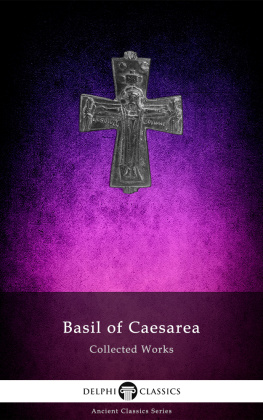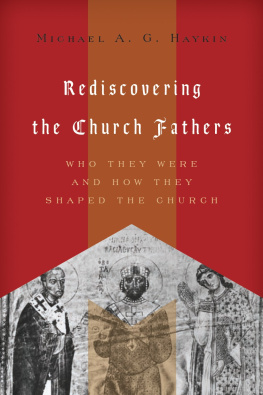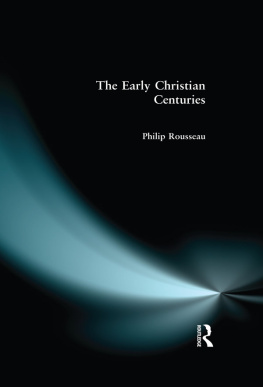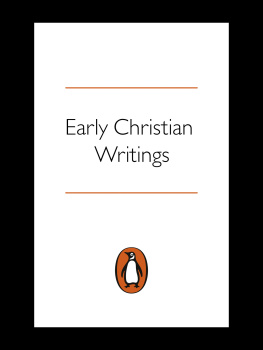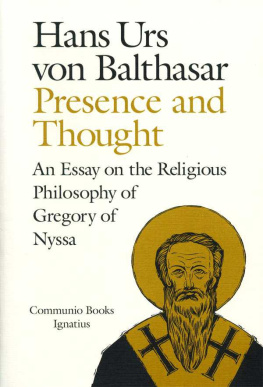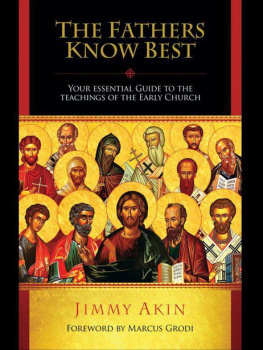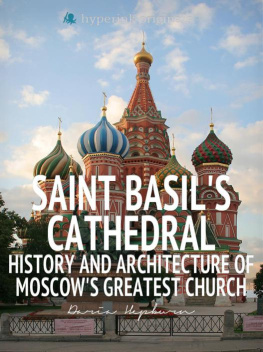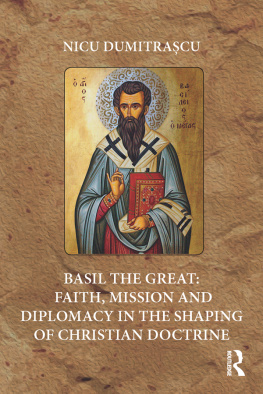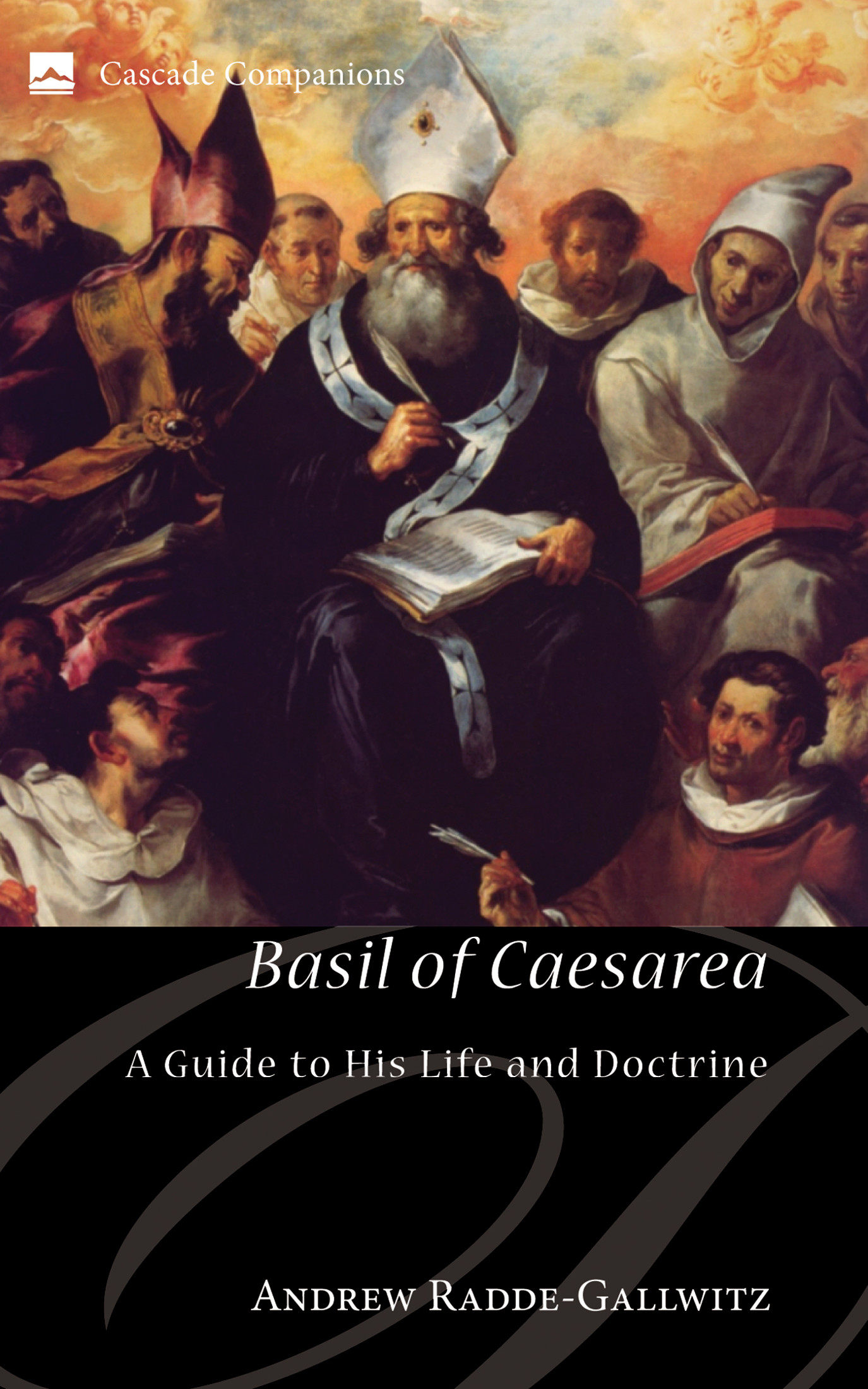The Christian theological tradition provides an embarrassment of riches: from Scripture to modern scholarship, we are blessed with a vast and complex theological inheritance. And yet this feast of traditional riches is too frequently inaccessible to the general reader.
The Cascade Companions series addresses the challenge by publishing books that combine academic rigor with broad appeal and readability. They aim to introduce nonspecialist readers to that vital storehouse of authors, documents, themes, histories, arguments, and movements that comprise this heritage with brief yet compelling volumes.
Reading Paul by Michael J. Gorman
Theology and Culture by D. Stephen Long
Justpeace Ethics by Jarem T. Sawatsky
Reading Bonhoeffer by Geffrey B. Kelly
Christianity and Politics in America by C. C. Pecknold
The Letter to the Hebrews in Social Scientific Perspective by David A. deSilva
Philippians in Context by Joseph H. Hellerman
Introduction
Valens was a military man who had been raised to the purple as Roman emperor by his brother, Valentinian. He was known to have a ferocious temper. And he was a Christian who was not above throwing his weight around in disputes among church leaders. According to one story, a group of eighty Christian clergymen grew tired of his abusefor what exact reason they were oppressed, we do not knowand came to the city of Nicomedia to petition the emperor. Furious, Valens sent them all off on a ship, ostensibly into exile. When the vessel had sailed a ways into the gulf, under prior orders from the emperor it was set on fire by the crew and all eighty were burned to death, while the crew escaped.
On January , , the feast of the Theophany, in the Cappadocian city of Caesarea, Valens showed up at the liturgy, which was presided over by the citys bishop, Basil. Basil, it happens, taught a different version of Christian doctrine than the one Valens favored. Basils doctrine took its inspiration from the creed produced at the Council of Nicaea in , which is the basis of the confession of faith recited by millions of Christians today. Nicaeas creed proclaimed that the Son of God is of the same substance as God the Father and from the substance of the Father. Valens had learned Christianity of a different kind, one suspicious of Nicaeas attempt to make the Son fully equal to God. Valens and his partisans objected to the Nicene Creed; the bishops he supported found it better to omit the language of substance altogether. Valens was in the midst of purging the eastern empire of any bishop opposed to him, and Basil was one of the few left standing. We are told that on one occasion, some time before Valens visit to Caesarea, he had sent his prefect Modestus to coerce Basil. Modestus offered full imperial support to Basil on one condition: that he drop of the same substance from the creed. The implication was not lost on anyone: Basil was calling the emperors religion a sham maintained by force rather than genuine faith.
Valens personal entry into Caesarea in January , together with the vast imperial retinue, would obviously not have gone unnoticed. The stage was set for a dramatic showdown, and it is little wonder that the episode features prominently in the tales told of Basil by his admirers after his death. Valens entourage entered Basils church with him. It must have been an awesome and terrifying scene. But in the account of Basils friend, Gregory of Nazianzus, it was Valens and not Basil who was shaken:
Upon [Valens] entrance he was struck by the thundering roll of the Psalms, by the sea of heads of the congregation, and by the angelic rather than human order which pervaded the sanctuary and its precincts: while Basil presided over his people, standing erect, as the Scripture says of Samuel ( Samuel :), with body and eyes and mind undisturbed, as if nothing new had happened, but fixed upon God and the sanctuary, as if, so to say, he had been a statue, while his ministers stood around him in fear and reverence. At this sight, and it was indeed a sight unparalleled, overcome by human weakness, his eyes were affected with dimness and giddiness, his mind with dread.
As Christian emperor, Valens was expected to present gifts during the eucharistic celebration. As he approached the altar, he was so stunned that he nearly tripped and fell.
Afterwards, Valens and Basil spoke. Their conversation is not recorded. According to Gregory, Basils wise words so moved Valens that it marked the beginning and first establishment of the Emperors kindly feeling towards us; the impression produced by this reception put an end to the greater part of the persecution which assailed us like a river.
More than simply allowing Basil to govern the churches of Cappadocia, Valens actively supported him. He set him in charge, together with another bishop, of appointing new bishops for the Roman province of Armenia Minor and the client kingdom of Armenia, a crucial buffer with the Persian Empire. Roman emperors wished desperately to control affairs there and sought to use ties of Christian fellowship to spread their influence. Furthermore, Valens patronized Basils massive charitable efforts in Caesarea, which included new buildings dedicated to housing and feeding the poor, as well as hospitals and schools for vocational training.
These acts of support and patronage demand explanation. Indeed, one must wonder why Basil was not sent into exile like so many of his allies. It is not that Valens was won over to Basils cause or convinced of his doctrine. The emperor continued his assault on other, less fortunate supporters of the Nicene Creed. In , his agents had Basils brother and many others sent into exile. Our sources seem to attribute Basils success simply to his force of character. We must treat these sources, which are uniformly biased against Valens, with caution. But, even when read with appropriate suspicion, our sources seem to reveal that Valens saw Basil less as theologically persuasive and more as politically immobile.
As we embark upon a study of Basils theology, it is important to register that he did not write in a position of detached, academic isolation. His words had real-world consequences. When he wrote, his typical purpose was not so much to persuade a neutral audience as to solidify connections he already had, or to establish new networks of friends and allies. This might seem distastefully political to modern readers. We are accustomed to the particularly modern split between politics, which is about pragmatic problem solving, and theology, which is often dismissed (I would say unjustly) as inconsequential, tedious wrangling about religious minutiae. That is how the powers that be in our cultural and symbolic world divide things up; it was not so in Basils day. Theology then was written within a network of friends, potential friends, and enemies. The network was always shifting: one bit of slander on your character and your friends could abandon you; with a careful campaign of letter writing, an enemy could come around; a stranger could become a brother simply by sending a response letter and acknowledging fellowship. In an empire that was slowly becoming Christian, theology had grave practical consequences.
St. Basil the Great lived from around to . He cut a massive figure in his day. Although he is one of the most influential figures in Christian history, his work is typically read today only by professional scholars. This is of course understandable given the distance between his time and ours. But, for centuries, Basils writings, or at least excerpts from them, were part of an informal curriculum of must-reads for educated Christians. They were translated into several languages. In Byzantine tradition, Basil was remembered as one of the Three Holy Hierarchs, together with his friend Gregory of Nazianzus and their younger contemporary John Chrysostom. Medieval Christianity was a traditional culture that looked to the past for inspiration. We often think of ourselves differently, as separated from the premodern world by a vast gulf. However, at the same time, many Christians today perceive a spiritual anemia in modern culture and in modern Christianity itself, and desire to explore their own tradition more deeply. Their goal is not to escape the modern world, but to thicken it; they want more interesting options than sentimentality or rationalism, fundamentalism or liberalism, traditionalism or progressivism, the nauseating rhetoric of right and left. To those who are so inclined, Basil is a worthy study. Yet, readers of Basil will not find a mythical Golden Age when all Christians were united and harmony reigned in the churches. Basil and his contemporaries have lessons for Christians today, but they are not as obvious as this. What we see is that the struggle for community of life, of affection, and of belief was as difficult and as necessary then as it is now and that friendship and Christian kinship are beautiful but fleeting projects full of irony and risk.


